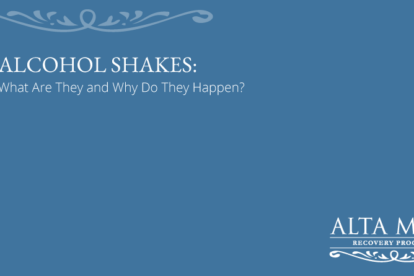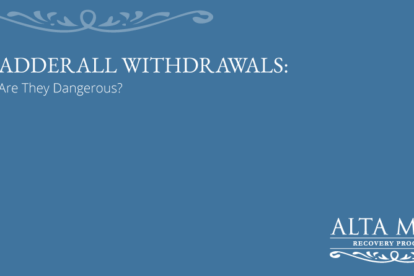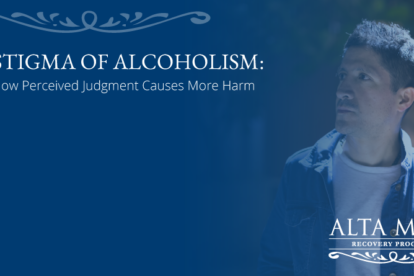
Communication Disorder and Drug Addiction
One of the most remarkable skills we have as humans is the ability to communicate with one another, allowing us to learn, express ourselves, connect with others, and understand the world around us. But when you have a communication disorder, the abilities most take for granted are disrupted, and your ability to connect with others is diminished, often causing deep emotional distress. When your communication disorder accompanies or is the result of drug addiction, healing from that distress requires specialized dual diagnosis treatment.
Communication Disorder: Disrupted Communication
Communication disorder isn’t a single diagnosis, but a collection of disorders that impair your ability to understand, detect, and use speech to communicate with others. This may include speech, language, and auditory processing difficulties that prevent you from engaging in meaningful discourse, limiting your opportunities for self-expression, social connection, and many everyday functions. By keeping you from participating in one of the basic building blocks of the human experience, a communication disorder can cause serious psychological distress, often leading to isolation, anxiety, and depression. While this is particularly true if you have experienced teasing, taunting, or ostracization as the result of your disorder, even people who have experienced no direct negative consequences of their disorder often feel deep insecurity, shame, and loneliness.
The causes of communication disorder may be either developmental or acquired and include:
- abnormal brain development
- traumatic brain injuries
- genetic factors
- neurological disorders
- physical disability
- in-utero exposure to harmful substances
- hearing impairment
- substance abuse
Communication disorders that emerge in childhood are more commonly diagnosed in boys than in girls.
Types of Communication Disorders
Communication disorder encompasses a range of experiences that include:
- Speech Disorders. Speech disorders affect your ability to use your voice for clear communication. You may substitute words in a nonsensical way, speak in an unusual rhythm, or your voice may have an unusual pitch or volume, making it difficult for others to understand. One of the most common speech disorders is stuttering.
- Language Disorders. Language disorders can affect either your speech or writing, or both. You may struggle with sounds, structure, sentence formation, word meaning, or the ability to use language in a socially appropriate manner.
- Hearing Disorders. Being unable to hear clearly disrupts your ability to rely on hearing in verbal communication.
- Central Processing Disorders. Central processing disorders impair your ability to properly analyze audio signals and make meaning out of auditory information.
While some people experience a single form of communication disorder, many experience multiple disorders at once, each feeding into the other.
Begin Your Recovery Journey Today
866-922-1350Communication Disorder and Addiction
The psychological distress experienced by people with communication disorder can act as a catalyst for drug abuse as you seek to alleviate feelings of anxiety or depression. For some, drugs provide a temporary way of increasing confidence and sociability while potentially minimizing certain communication difficulties. For others, drugs offer an escape from emotional pain and suffering, allowing you reprieve from feelings of shame or loneliness. As you come to depend on drugs for emotional or practical function, however, addiction can quickly take hold.
In some cases, drug addiction itself is the cause of communication disorder. In fact, slurring words, comprehension problems, and nonsensical sentences are hallmarks of certain types of active drug use. Chronic, heavy use of these drugs can make these communication difficulties permanent, affecting you even when you are not using, and often creating serious distress that in turn pushes you deeper into your addiction.
Dual Diagnosis Treatment for Communication Disorder and Addiction
Today, there is a broad range of therapies available for communication disorders, the nature of which depends on the specific manifestation of the disorder. When communication disorder is accompanied by drug addiction, however, dual diagnosis treatment offers the best way toward lasting recovery from both your addiction and the psychological struggles stemming from your communication problems.
An integrated co-occurring drug rehab and treatment center is designed to create a strong foundation of recovery from both substance abuse and any underlying psychological pain that is driving your addiction. In doing so, you are able to achieve the emotional and behavioral tranquility you need to live a happier, healthier, and more productive life without resorting to harmful substances. This process begins with an in-depth psychological assessment to better understand the roots of your drug use and diagnose any co-occurring mental health disorders that must be treated to alleviate psychological distress. Your clinical team will then create a personalized treatment plan that seeks to engage you in a process of healing and transformation in a way that makes sense to you through a variety of therapeutic modalities, including:
- Cognitive Behavioral Therapy
- Psychodynamic Therapy
- Experiential Therapy
- Holistic Therapies
- 12-step support groups
Your psychiatrist may also recommend pharmacological therapies to address mood and anxiety symptoms, or to treat any other co-occurring mental health disorder.
Many people with communication disorder may feel reluctant to seek treatment due to feelings of embarrassment or the belief that they will not be able to effectively communicate with their treatment providers. However, the right treatment facility will have the resources to help you feel welcome, understood, and valued, and invite you to participate in therapies that allow you to express yourself in whatever way works for you. While people with communication disorder often find that they are initially attracted to holistic and experiential therapies, the progress made in these therapeutic forms can open up doors to engaging in more verbal forms of healing as they gain confidence in their communicative abilities. By offering multiple avenues toward healing, such treatment programs allow you to deeply explore your inner self, your psychological struggles, and your drug addiction while practicing concrete recovery strategies for long-term wellness.
If your communication disorder or drug addiction has impacted your relationship with your loved ones, family programming can be a critical piece of the recovery puzzle. With the guidance of experienced clinicians, your family members will gain a greater understanding of what you are going through and, together, you can start a conversation about how to heal. By drawing on the gains you have made in treatment and the support of your therapist, you can find ways to express your needs, experiences, and thoughts effectively in a safe space where you feel heard and understood. Many find that this process is deeply nourishing and essential to creating the framework for sustainable recovery, ongoing emotional health, and the rejuvenation of hope, possibility, and empowerment.
If you would like more information about communication disorder and addiction treatment, or have any questions about dual diagnosis treatment, we encourage you to contact us at any time. We are always available to offer support and guidance to help you start your journey toward healing.





